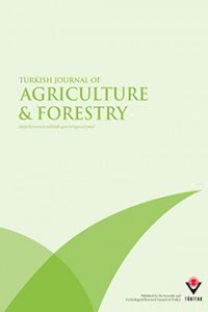Global perspectives on first generation liquid biofuel production
Transport today is mostly sustained by liquid fossil fuels, despite the fact that the invention of the combustion engine started with biofuels. However, known environmental impacts and the instability of the fossil-fuel market have revived the status of biofuels. Some concerns have appeared regarding how emerging global climate changes will affect biofuels' feedstock production, since agriculture is strongly dependent on climate variables. Therefore, numerical models were introduced to calculate how temperature and precipitation could affect crop production for biodiesel and bioethanol production. Furthermore, 4 scenarios projected by the Intergovernmental Panel on Climate Change were put into the calculations. The results show that temperature has significant impact on feedstock production in all cases (P < 0.05), while precipitation seems to be less significant. If the temperature increases by 6.4 °C as the Intergovernmental Panel on Climate Change predicts, production of bioethanol made from sugar beets will decrease by as much as 70%. For other feedstocks, the share of production decrease will be smaller. Only biodiesel made of soybean will be positively affected by a temperature increase. Since global climate change will have negative impacts on feedstock for biofuel production, it is a challenge to meet the projected increases in biofuels' share in the fuel market.
Global perspectives on first generation liquid biofuel production
Transport today is mostly sustained by liquid fossil fuels, despite the fact that the invention of the combustion engine started with biofuels. However, known environmental impacts and the instability of the fossil-fuel market have revived the status of biofuels. Some concerns have appeared regarding how emerging global climate changes will affect biofuels' feedstock production, since agriculture is strongly dependent on climate variables. Therefore, numerical models were introduced to calculate how temperature and precipitation could affect crop production for biodiesel and bioethanol production. Furthermore, 4 scenarios projected by the Intergovernmental Panel on Climate Change were put into the calculations. The results show that temperature has significant impact on feedstock production in all cases (P < 0.05), while precipitation seems to be less significant. If the temperature increases by 6.4 °C as the Intergovernmental Panel on Climate Change predicts, production of bioethanol made from sugar beets will decrease by as much as 70%. For other feedstocks, the share of production decrease will be smaller. Only biodiesel made of soybean will be positively affected by a temperature increase. Since global climate change will have negative impacts on feedstock for biofuel production, it is a challenge to meet the projected increases in biofuels' share in the fuel market.
